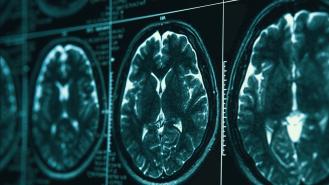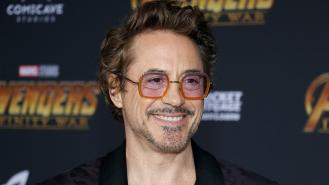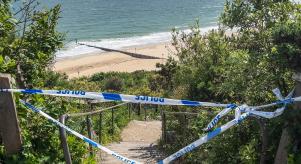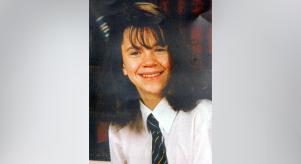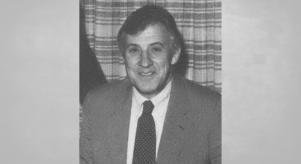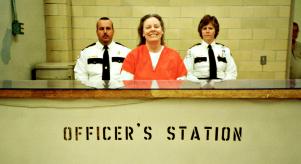
Aaron Hernandez: the fall of an NFL Icon
June 2013 – NFL star Aaron Hernandez of the New England Patriots drove his white SUV down a Boston highway. Hundreds of feet above him a news helicopter focussed its camera upon his vehicle, following its every move. The images were broadcast live on news outlets across America in an eerily reminiscent scene.
Almost to the day nineteen years prior, retired NFL star O. J. Simpson had sped down an American highway in a white SUV whilst news cameras followed him from above. Like O. J., the increase in media attention on Hernandez was due to his recent connection by police to a grizzly murder scene. Although at this point Hernandez was not under arrest, he would be just a few days later.
Before this, the tight end star had seemingly got the world at his feet. He’d played a pivotal role in helping the Patriots reach a Super Bowl, fans adored him, pundits praised his abilities and he’d been rewarded by a new $40million contract. With it all ahead of him, what went wrong for this talented 23-year-old?
Hernandez was born in 1989, in Bristol, Connecticut, to Dennis and Terri Hernandez. Dennis, of Puerto Rican descent, had played football at U-Conn (University of Connecticut) and was known locally as ‘The King’.
From an early age, the young Hernandez displayed sporting promise and by the time he reached Bristol Central High School, he was on the basketball, football and track running teams.
His father would play an imposing role in his life, pushing him and his brother D.J. to excel, often through sports. Both boys lived in fear of their father, who would often hand out physical abuse if he believed his sons weren’t trying hard enough. The boys would also witness their father abusing their mother, with Dennis often finding himself thrown out of the family home.
Despite the beatings, Hernandez was very close to his father and when Dennis surprisingly passed away in 2006 from complications from hernia surgery, the 16-year-old took the news hard. His father was the rock in his life, the guiding hand that kept him on track. Many close to Hernandez suggest his father’s death was the turning point in his life.
Shocking his family, Hernandez accepted a scholarship to play football at the University of Florida and not follow in his father’s footsteps to U-Conn. Under Urban Meyer, the collegiate football programme at Florida University was one of the best in the country.
Meyer was so keen to have Hernandez that he convinced Hernandez’s principal Dennis Siegmann to let him graduate a semester early. The lure of a future in the NFL proved too much for this young man who was both emotionally and academically unprepared to leave his school early.
If I had it to do over again, I would have fought tooth and nail not to let that kid graduate at midyear, not to let him go to Florida at midyear,’ Siegmann would later state in an interview. ‘Had we had a longer time with him, maybe we could have changed things.’
Meyer would also later recount that upon arrival at Florida, Hernandez seemed a ‘distressed person’. For all his physical prowess and readiness to play in the big leagues, the 17-year-old was struggling.
According to his brother D.J., from a very young age Hernandez had suffered continual sexual molestation by a male babysitter, something he was never truly able to deal with. Hernandez's relationship with his mother had also just broken down after she quickly moved on after the death of Dennis and started a relationship with Hernandez's cousin's husband, an act said to have 'enraged' Hernandez. Growing dependence on drugs, especially marijuana, had soon turned into a chronic addiction and questions about his own sexual identity had left Hernandez even more confused and alienated.
At the time, the macho world of American football had never seen an openly gay NFL player, leading to a toxic and homophobic culture. Dennis Hernandez had bred an equally intolerant environment at home, leading Hernandez to develop a lifelong feeling of self-hatred because of his sexual orientation.
It was early during his time at Florida that his destructive side began to emerge. It began with an unwarranted ‘sucker punch’ on a bar manager after a dispute over a $12 bar tab. No charges were pressed as the University supposedly got involved, ultimately demonstrating to Hernandez that his footballing status elevated him above the law. In the States, college football is big business, keeping the moneymakers on the field goes hand-in-hand with keeping revenues heading in the right direction.
Although his teammates would remember Hernandez as ‘the life of the party’, his extra-curricular fascination with violence would continue to grow. In late 2007, he was implicated in a double shooting after a confrontation at a club that left one man fighting for his life. On this occasion it would seem Hernandez was not the culprit, walking free from the police station and back onto the football pitch just days later.
Although he would later state that ‘every time I was on the field I was high on weed’, Hernandez’s performances on the field got him noticed. He won the national championship with The Gators and earned himself the John Mackey Award, making him the best college tight end in the country. The NFL beckoned.
In 2010, at the age of 20, Hernandez entered the draft. With the talents to be a first-round pick, he would eventually fall to the fourth round as NFL teams caught wind of his drug use and his 'social maturity' test scores being the lowest possible.
In the end, it would be the Patriots who would snap up a talented but troubled young man. When the 2010 season began, Hernandez was the youngest player in the league.
His star would briefly rise on the professional stage and alongside his teammate Rob Gronkowski, they formed one of the game’s greatest tight-end partnerships making history in the process. Outside of football, Hernandez began mixing with the criminal underworld, obtaining firearms and becoming increasingly paranoid that the police were out to get him.
The pressures led Hernandez to request a transfer from the Patriots, believing that his life was in danger. Instead, the team helped Hernandez find a second home, one he’d keep secret from his fiancée and young daughter, which would become a place he could escape too, smoke marijuana and stash weapons.
He was soon driving around in an armoured car, kitted out with secret compartments to conceal weapons. A state of the art home security system was installed in his home, a personal security guard was hired and he refused to travel in any vehicle that didn’t have tinted windows. By 2013, it all came to a head.
Odin Lloyd was a semi-professional footballer dating Hernandez’s fiancée’s sister. The two men were on a path to be potential in-laws but something went terribly wrong. On the afternoon of 17 June, a jogger discovered the body of Lloyd in a gravel pit just one mile away from Hernandez’s home in North Attleboro, Massachusetts. Lloyd had been shot multiple times.
Just one day later the police searched Hernandez's home and by the 26th June, they had enough evidence to charge the star NFL player with first-degree murder. About an hour and a half after his arrest he was released by the Patriots, his football career was seemingly over.
CCTV evidence and text messages placed Lloyd in Hernandez’s rented vehicle the night of his killing. DNA evidence placed Hernandez at the crime scene and gun casings discovered around the victim were matched to ones found in the rental car as well as Hernandez’s apartment. Further CCTV footage showed Hernandez returning home carrying a firearm. His own defence admitted to his presence at the murder but claimed he'd just been a witness; someone else had pulled the trigger.
In April 2015 after a two-month trial and a deliberation of six days by the jury, Hernandez was found guilty and convicted to life without parole.
During the two years between the crime and the trial, police investigators had discovered a car stashed away in Hernandez's cousin's house. The NFL star had spent much time here after his father’s death, growing extremely close to his cousin Tanya Singleton.
The car was linked to a Boston drive-by shooting in 2012 that resulted in the deaths of two men. This led to Hernandez facing new murder charges and the alarming implication that the NFL star had killed two people before going on to play an entire season with the Patriots.
In the end, Hernandez would be found not guilty of these crimes during a trial in April 2017. The defence insisted the prosecutor's star witness, Alexander S. Bradley, a known criminal who’d Hernandez had been associating with, was actually the perpetrator.
Bradley and Hernandez had a history, the former accusing the footballer of shooting him the face and leaving him for dead in 2013. This supposedly led to death threats from Bradley who then attempted to extort Hernandez for money, explaining why Hernandez increased his security and felt his life was in danger at that time.
Although no motive was ever definitely established for the death of Odin Lloyd, prosecutors in the case believed that Lloyd had said or discovered something that destroyed the trust and relationship he had with Hernandez. This could have included information about Hernandez’s sexuality or his links to the 2012 double homicide.
Just five days after Hernandez was acquitted of the Boston murders, he was found hanging from his bedsheets in his prison cell. The verdict was suicide.
After his death, it was discovered he was suffering from one of the worst cases of CTE (chronic traumatic encephalopathy) ever discovered in a person of his age. The degenerative brain disease, common in athletes of high-impact sports, is caused by repeated head trauma and leads to symptoms including aggression, paranoia and poor judgement with a lack of impulse control. Some believe the severity of Hernandez's CTE could partially explain some of his actions.


